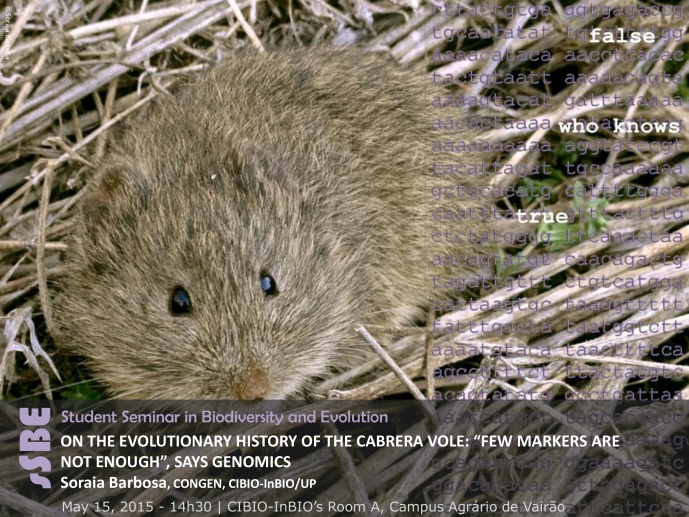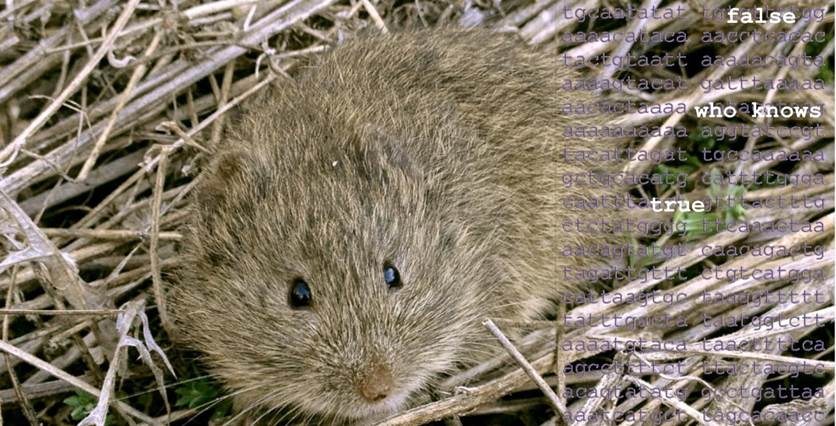ON THE EVOLUTIONARY HISTORY OF THE CABRERA VOLE: “FEW MARKERS ARE NOT ENOUGH”, SAYS GENOMICS

STUDENT SEMINAR IN BIODIVERSITY AND EVOLUTION

The Cabrera vole (Microtus cabrerae) is an endangered rodent only remnant in the Iberian Peninsula. It is phylogenetically distinctive within Microtus, and characterised by an unusual suite of genetic, life history and ecological characteristics. Despite its protected conservation status, few studies have focused on the evolutionary history of this species, which is important to inform meaningful conservation strategies. In this talk I’ll present the results of a phylogeographic study conducted over the entire species range, using mitochondrial, autosomal and sex-linked loci, and will further compare them with genomic SNP data generated using Genotyping-by-Sequencing. The combination of these studies highlights the importance of analysing different types of markers, and how next-generation sequencing data can be crucial in understanding the dynamics of populations over time and space, especially in the light of recent habitat loss and climate change.
Soraia Barbosa is a fourth year PhD student under the Doctoral Program “Biodiversity, Genetics and Evolution” at the University of Porto and a member of the Conservation Genetics (ConGen) group in CIBIO-InBIO. Soraia Barbosa is supervised by Dr. Paulo Célio Alves (CIBIO-InBIO) and Dr. Jeremy Searle (Cornell University, Ithaca, USA) with a thesis project entitled “Using landscape genetics to assess the distribution and connectivity of two endangered voles in southern Portugal”.
Image credits: Soraia Barbosa